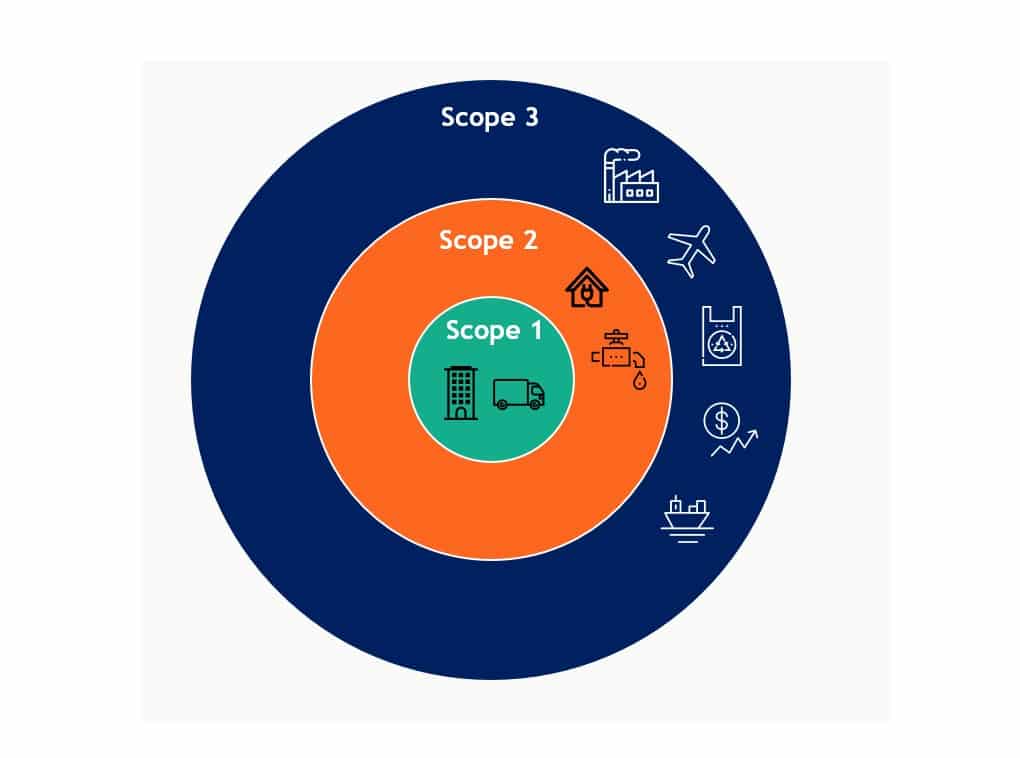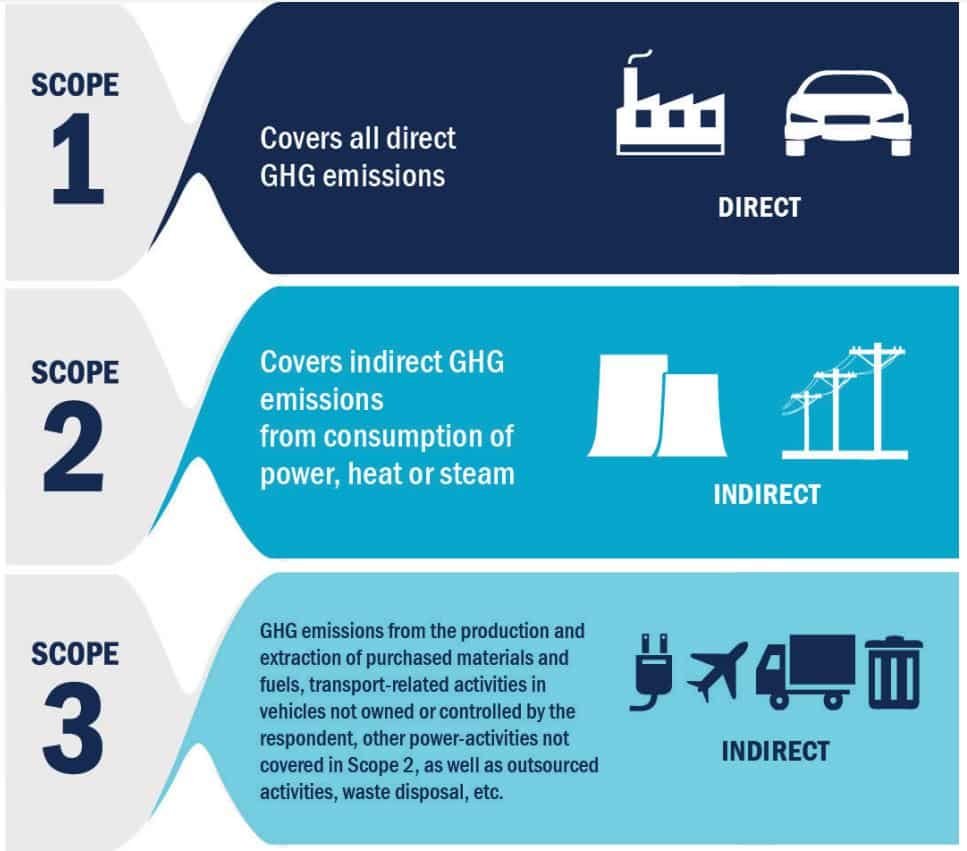The pressure to seek net zero pledges that include Scope 3 emissions is rising.
Here is an overview of the differences between Scope 1, Scope 2, and Scope 3 emissions.
CO2 emissions falling under Scope 3 include value chain emissions, and carbon footprint from suppliers, customers, business travels, company leases, and more.
Businesses with low Scope 1 and 2 emissions, but high Scope 3 emissions may soon face financial issues if they don’t pay attention to it. Why is that so?
Investors’ Focus Favoring the Importance of Scope 3 Emissions
Before investors were looking for companies to reduce only operational emissions (Scope 1) and indirect emissions from energy purchases (Scope 2).
But now, they are shifting their focus to the whole business supply chain.
ESG investors are looking for companies that are able to change and commit to achieving climate goals.
Thus, the main question they have concerns the entire activities that firms are doing or not relating to emissions. This means the importance of Scope 3 emissions is of high interest, too. In fact, it is where the largest carbon footprint is happening.
According to the Greenhouse Gas Protocol, there are 15 classes of Scope 3 emissions. GHG Protocol uses a world-renowned standard to measure and manage GHG emissions of companies and their value chains. It identifies “purchased goods and services” and “use of sold products” as most vital.
Take for instance the case of the oil and gas industry. O&G companies often have big Scope 3 emissions from end-product combustion.
Those value chain emissions are even much higher, 6x or more than the combined Scope 1 and 2 emissions.
In fact, many businesses have Scope 3 emissions that account for over 70% of their total footprint.
Why Dealing With Value Chain Emissions is Tricky?
As investors prefer a low emissions economy, a company’s climate plans have to align with it. But, companies with high supply chain emissions but low operational emissions may find it tough.
The financial challenge is due to various things. These include policy risks, carbon pricing, and shifts in end-product market demand.
Worse is that companies don’t have enough control over their Scope 3 emissions. This makes factoring in and managing supply chains emissions complex and burdensome.
Complicating the issue is a lack of regulatory guidance promoting the importance of Scope 3 emissions.
SEC had recently issued a proposed rule on emissions disclosure. Yet, while it has clear guidelines on Scopes 1 and 2 disclosure, disclosing supply chain emissions is left to the company to determine.
Is Scope 3 emissions “material” to disclose, too? It depends on the firm to decide.
For bigger companies that have been reporting all their emissions, it is a must. But for smaller ones that don’t have the capacity to do it, they are an exception to the SEC’s rule.


